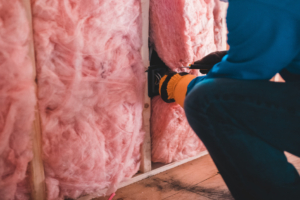Everything You Need To Know About Syringe Filters

Syringe filters are small, versatile filtration devices that are indispensable in laboratories, pharmaceutical production, and environmental testing, ensuring sample purity and accuracy. These filters may seem simple, but their selection and use require careful consideration. Learning what you need to know about syringe filters is key to selecting the most suitable option for your needs.
What Are Syringe Filters?
Syringe filters are single-use devices that remove particulate contaminants from liquids or gases. They have a plastic housing that contains a membrane filter. A syringe filter attaches to the end of a syringe, forcing the sample through the membrane under pressure. This process results in clean, particulate-free output that’s critical for sensitive analyses, such as chromatography and sterile filtration. Syringe filters come in various sizes and pore diameters to accommodate different applications.
Common Types of Syringe Filters
Your choice of syringe filter depends on its membrane composition and compatibility with the filtered materials. These are the primary types of syringe filters:
- Nylon membrane filters: These are ideal for filtering aqueous and organic solvents due to their hydrophilic nature. They’re popular in high-performance liquid chromatography (HPLC) sample preparation but are unsuitable for proteins.
- Polytetrafluoroethylene (PTFE) filters: Hydrophobic in nature, these filters are compatible with aggressive solvents, acidic solutions, and gases.
- Polyethersulfone (PES) filters: These filters are known for their high flow rates and compatibility with biological samples like cell media.
- Cellulose acetate filters: These are a great choice for aqueous solutions and general filtration, particularly for minimizing protein bindings.
Syringe Filter Applications
Syringe filters in laboratories filter water samples for accurate pollutant analysis and precise results. In pharmaceutical production, these filters contribute to drug formulation by removing particulates and maintaining batch consistency and high-quality standards.
In the food and beverage industry, syringe filters preserve sample integrity during testing processes, aiding in assessing quality and reducing contamination in consumable products. These applications highlight the versatility and essential functionality of syringe filters in scientific and industrial processes.
Choosing the Right Syringe Filter for Your Needs
Selecting the ideal syringe filter involves understanding the specific requirements of your application. Consider factors like pore size, filter material, chemical compatibility, and transparency. Pore sizes such as 0.45 or 0.22 microns are the most popular for fine filtration. With emerging technologies in 0.45-micron syringe filters, modern syringe filters now deliver exceptionally high precision for fine particulate removal.
Filter housings come in different sizes, commonly ranging from four millimeters for small volumes to 33 millimeters for larger volumes.
By understanding everything you need to know about syringe filters, you can maintain the purity of samples and uphold the accuracy of laboratory and industrial processes. These devices offer unmatched convenience and efficiency to meet stringent quality standards.





